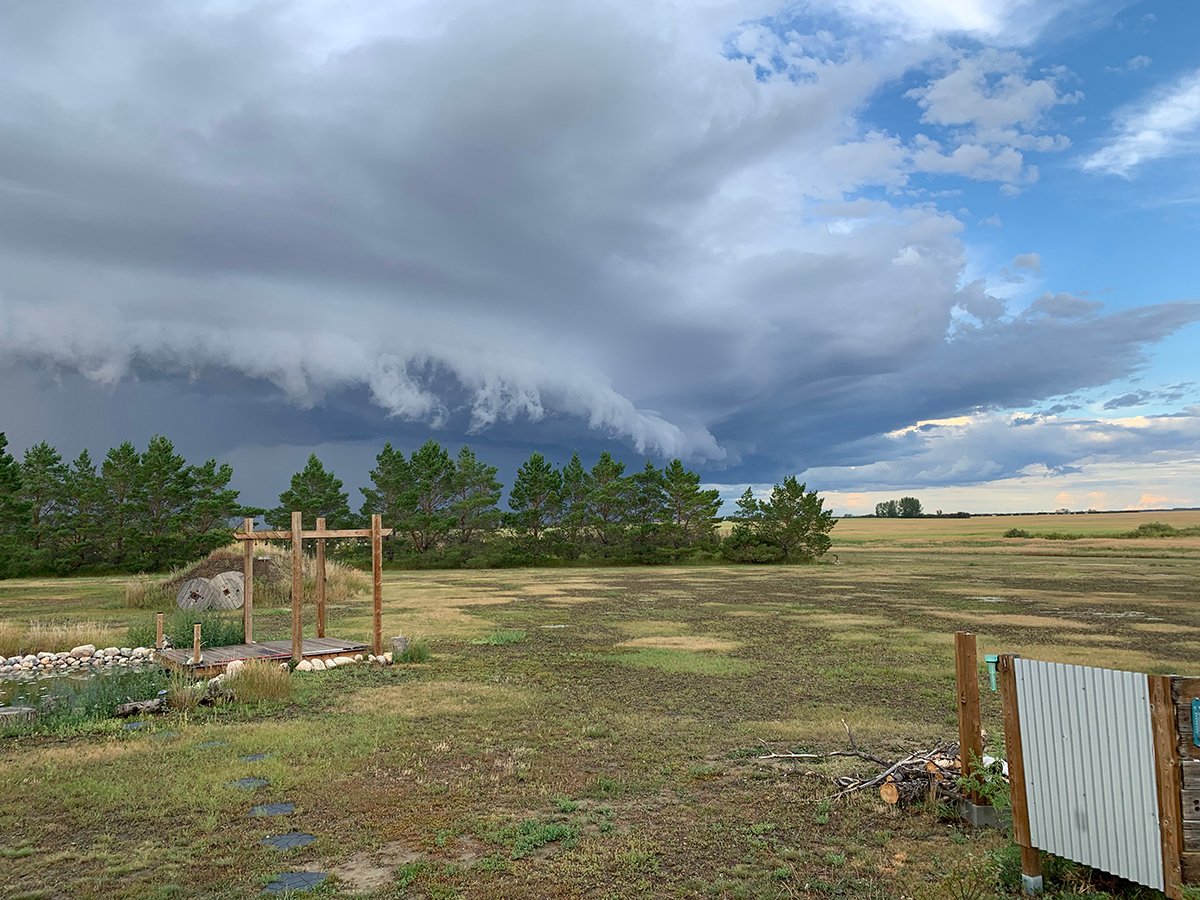SASKATOON – An organic miller from Quebec who is buying idle flour mills in Yorkton and Esterhazy, Sask. believes he has his feet planted in the past but his eye on the future.
Hubert Lacoste, president of AbŽnakis Milling of Ste. Claire, Que., said the facilities are ideally located.
“We want to be in the middle of the Prairies … and to save on transport to Vancouver and the United States,” he said in an interview.
The comparatively small Yorkton and Esterhazy mills, which use conventional steel-grinding technology, complement AbŽnakis’ stone-grinding mill in Quebec that can process up to 100 tonnes a day of wheat, barley, rye, peas and buckwheat.
Read Also

Storm dynamics and extreme rainfall
Besides moisture, instability and orographic lift, the next biggest factor that contributes to heavy or extreme rainfall is storm dynamics.
The Yorkton facility was owned by B.P. Kent Flour Mills Ltd. which went bankrupt last year. Another Kent mill in Virden, Man. was dismantled and its equipment sold this spring.
The Yorkton mill is in good shape and will be easy to start up after some cleaning, Lacoste said.
The Esterhazy mill is another story. It opened in 1907, closed in the early 1980s and was threatened with demolition this year.
“It will operate almost as a museum. It will grind, but will produce only 500 pounds an hour so it’s #not enough to produce a living,” he said.
A local group, Friends of the Esterhazy Mill, have volunteered to begin cleaning the facility, apply for heritage status and eventually turn it into a tourist attraction.
“Milling organic flour, plus some picnic grounds and so on, would turn it into something – but that is a long way off, we have a lot of work to do yet,” said George Beckton, a member of Friends of the Esterhazy Mill.
Lacoste said he’s not involved in the Esterhazy mill for business reasons.
“It is a beautiful asset for heritage in Canada. To see it operating as it was 100 years ago, that has some value.”
Finding enough local, organically grown grain to keep the mills operating will perhaps be Lacoste’s biggest challenge.
“We don’t believe there is enough grain at this time. We will have to try to develop organic agriculture,” he said.
Although he hopes to draw on local production, he will have to go through the Canadian Wheat Board.
Earl Geddes, head of the board’s sales and development, said the board is enthusiastic about developments at the mills.
It has a special pricing policy for organic mills that is predictable for the mill and lets growers receive a premium reflecting the demand for organic grain.
“That is critical for the mills because the supply of organic wheat is not any more than adequate for their needs if the markets that they talk about are real,” he said.
Ian Cushon, an organic farmer from Oxbow, Sask., said he is encouraged that Lacoste is taking an interest in prairie milling.
“He seems to have a high profile as a Quebec miller … . He has some of the best promotional material I’ve seen,” he said.
“I’m pretty sure there is a market. The margins have been coming down somewhat, but he’s probably got a niche market.”














